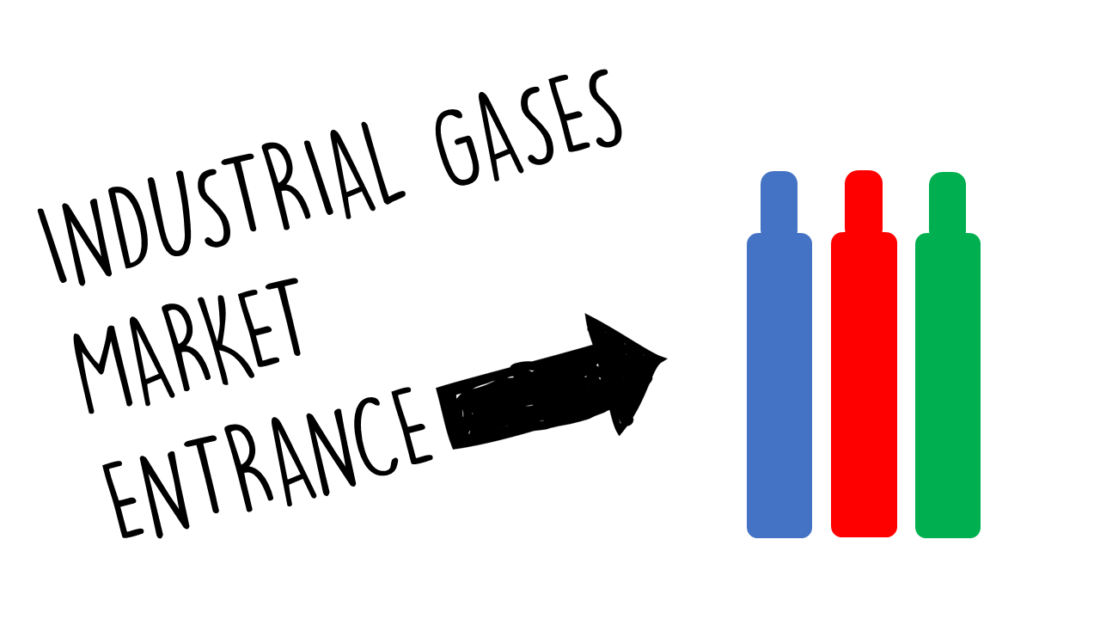Introduction
Industrial gases play a crucial role in various industries, providing essential components for manufacturing processes, enhancing product quality, and enabling advanced techniques. Germany, known for its strong industrial base, is a perfect fit for the industrial gas sector. With a diverse range of manufacturing sectors and a commitment to precision engineering and quality, Germany creates a high demand for industrial gases. Additionally, Germany’s focus on sustainability, innovation, and research further drives the growth and development of the industrial gas sector in the country.
Germany’s Strong Industrial Base: A Perfect Fit for Industrial Gases
Germany has a long history as an industrial powerhouse, with a strong manufacturing sector that spans various industries. The country is known for its expertise in automotive manufacturing, machinery production, chemical production, and more. This diverse industrial base creates a high demand for industrial gases, which are essential in many manufacturing processes.
The automotive industry in Germany, for example, relies heavily on industrial gases for various applications such as welding, heat treatment, and surface coating. The machinery industry also requires industrial gases for cutting and welding processes. Additionally, the chemical industry uses industrial gases as raw materials or catalysts in the production of various chemicals.
Precision Engineering: Germany’s Commitment to Quality
Germany is renowned for its precision engineering and high-quality manufacturing. German products are known for their reliability, durability, and precision. Industrial gases play a crucial role in maintaining these standards of quality.
In precision engineering processes such as metalworking and machining, industrial gases are used to create controlled atmospheres that prevent oxidation and ensure precise temperature control. This helps to maintain the integrity of the materials being worked on and ensures the accuracy of the final product.
Advanced Manufacturing Techniques: Driving the Demand for Industrial Gases
Advanced manufacturing techniques such as additive manufacturing (3D printing) and automation are becoming increasingly popular in Germany’s manufacturing sector. These techniques require the use of industrial gases to enable and enhance the manufacturing processes.
In additive manufacturing, industrial gases such as nitrogen and argon are used to create controlled atmospheres that prevent oxidation during the printing process. This ensures the quality and integrity of the printed parts. Industrial gases are also used in automation processes, such as robotic welding, to provide the necessary shielding gases for efficient and precise welding operations.
Environmental Consciousness: Germany’s Embrace of Sustainable Solutions
Germany is known for its commitment to sustainability and environmental protection. The country has set ambitious goals for reducing greenhouse gas emissions and transitioning to renewable energy sources. Industrial gases can contribute to these sustainable efforts in manufacturing processes.
For example, hydrogen, an industrial gas, can be produced from renewable energy sources and used as a clean fuel for transportation or as an energy carrier for power generation. Additionally, industrial gases can be used in processes such as wastewater treatment and air pollution control, helping to reduce environmental impact.
High Demand Industries: Automotive, Aerospace, and Beyond
The automotive and aerospace industries are two of the key industries in Germany that have a high demand for industrial gases. In the automotive industry, industrial gases are used for various applications such as welding, heat treatment, and surface coating. In the aerospace industry, industrial gases are used for heat treatment, surface treatment, and fueling processes.
Apart from automotive and aerospace, other industries in Germany also have a high demand for industrial gases. The electronics industry relies on industrial gases for semiconductor manufacturing processes such as etching and deposition. The healthcare industry uses industrial gases for medical gas supply systems and cryogenic applications.
Innovation and Research: Germany’s Thriving R&D Sector
Germany has a strong focus on innovation and research in various industries. This focus drives the development of new applications and technologies for industrial gases. Research institutions and companies in Germany are constantly exploring new ways to optimize manufacturing processes, improve product quality, and reduce environmental impact.
For example, research is being conducted on the use of industrial gases in additive manufacturing to improve the quality and efficiency of 3D printing processes. Research is also being done on the use of industrial gases in energy storage and conversion technologies, such as hydrogen fuel cells.
Energy Transition: Industrial Gases as Catalysts for Change
Germany is undergoing an energy transition, aiming to reduce its reliance on fossil fuels and transition to renewable energy sources. Industrial gases, such as hydrogen, can play a crucial role in this transition process.
Hydrogen can be produced from renewable energy sources through electrolysis and used as a clean fuel for transportation or as an energy carrier for power generation. The production and use of hydrogen can help reduce greenhouse gas emissions and contribute to a more sustainable energy system.
Safety and Efficiency: Germany’s Strict Standards for Industrial Processes
Germany has strict safety and efficiency standards in industrial processes. Industrial gases help meet these standards and ensure safe and efficient manufacturing operations.
For example, industrial gases are used in welding processes to provide shielding gases that protect the weld pool from atmospheric contamination. This ensures the quality and integrity of the welds. Industrial gases are also used in heat treatment processes to create controlled atmospheres that prevent oxidation and ensure consistent heat treatment results.
Infrastructure and Logistics: Germany’s Advantageous Position in Europe
Germany’s well-developed infrastructure and logistics network provide an advantageous position for the industrial gas sector. The country has a dense network of pipelines, storage facilities, and distribution centers that ensure a reliable supply chain for industrial gases.
Germany’s central location in Europe also makes it an ideal hub for the distribution of industrial gases to other European countries. This efficient logistics network enables timely delivery of industrial gases to customers across various industries.
Collaborative Partnerships: German Companies and Industrial Gas Suppliers Working Together
Collaboration between German companies and industrial gas suppliers is crucial for the growth and innovation of the industrial gas sector in Germany. German companies rely on industrial gas suppliers to provide them with the necessary gases and expertise to optimize their manufacturing processes.
Successful partnerships between German companies and industrial gas suppliers have led to the development of new applications and technologies. For example, collaborations between automotive manufacturers and industrial gas suppliers have resulted in the development of innovative welding techniques and materials that improve manufacturing efficiency and product quality.
Conclusion
Germany’s strong industrial base and commitment to quality, precision engineering, sustainability, innovation, and research make it a perfect fit for the industrial gas sector. The diverse manufacturing sectors in Germany create a high demand for industrial gases, which play a crucial role in maintaining precision and quality in manufacturing processes. Advanced manufacturing techniques, environmental consciousness, high-demand industries, innovation and research, energy transition, safety and efficiency standards, infrastructure and logistics, and collaborative partnerships all contribute to the growth and development of the industrial gas sector in Germany.




